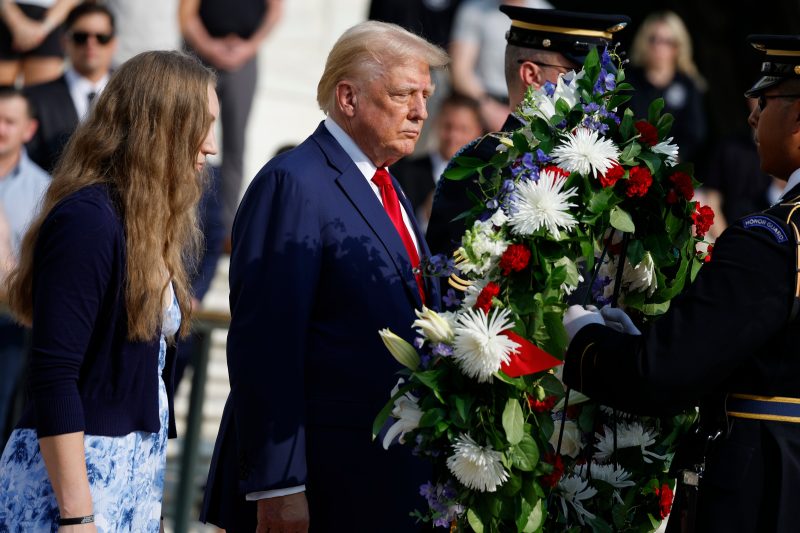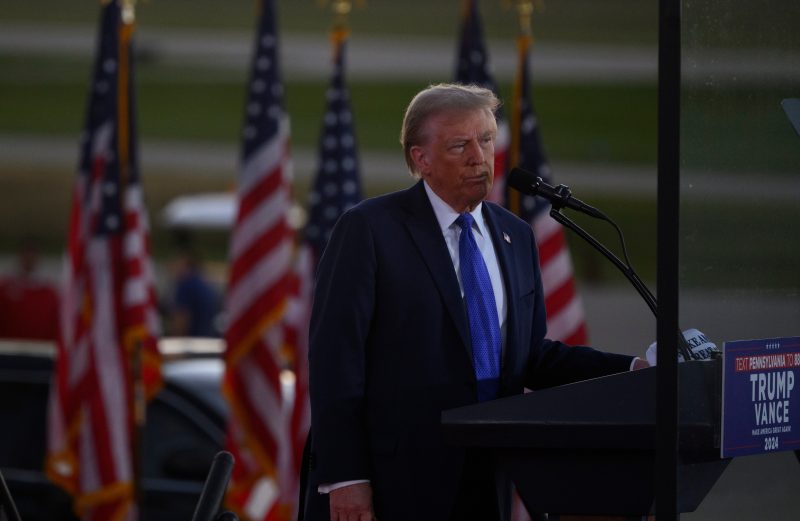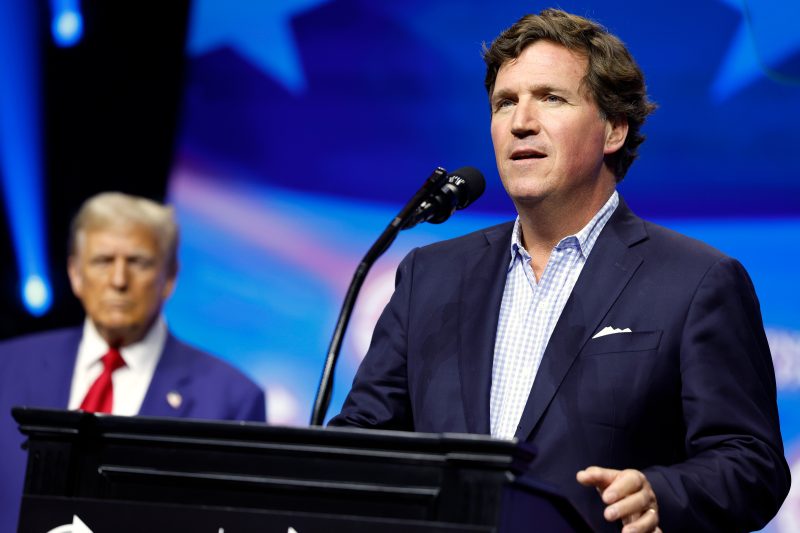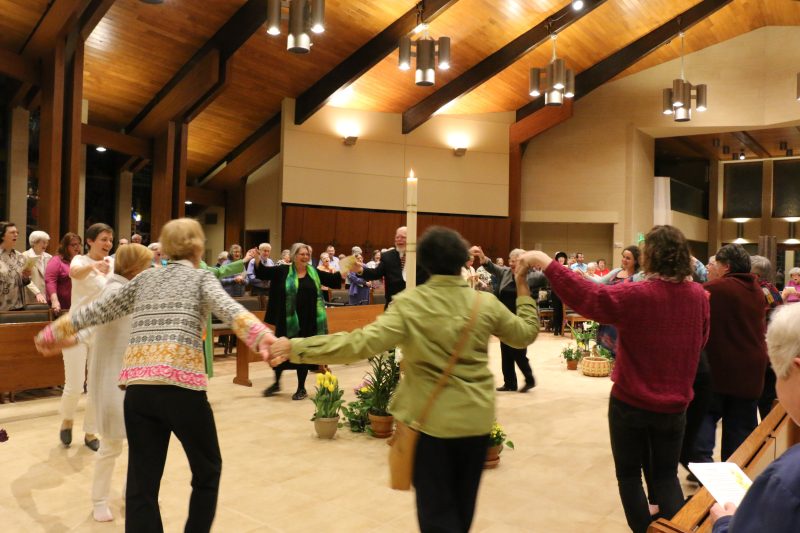
Trump’s cemetery clash ups the ante on politicizing military, memorials
The details of an altercation Monday between Donald Trump’s campaign aides and an official at Arlington National Cemetery over the campaign capturing images of an area the military regards as hallowed remain murky.
Regardless of the precise details, it’s merely the latest in a long line of such Trump-fueled controversies. Trump has repeatedly injected politics into appearances with the military and at other memorials in ways that flout American norms.
Trump keeps pushing the boundaries of what’s acceptable when it comes to the injection of partisan politics into military matters.
In this case, the comments from both sides and new reporting from The Washington Post indicate there was indeed some kind of dispute over the Trump campaign’s desire to take photos and video in Section 60. Section 60 is where many U.S. service members who died in recent conflicts are buried — and where the cemetery says campaign activity is prohibited.
The political purpose here is rather evident. The Trump campaign this week has pointed to the deaths of 13 service members killed in the Biden administration’s chaotic 2021 withdrawal from Afghanistan in efforts to attack Vice President Kamala Harris. It posted videos of Trump standing at gravesites with the troops’ family members, drawing criticisms from some veterans groups. In a TikTok featuring the clips, Trump criticized the Biden administration.
A U.S. defense official familiar with the situation told The Post on Wednesday that Trump’s campaign was warned more than once. “What was abundantly clear-cut was: Section 60, no photos and no video,” the official said. Trump’s campaign has pointed to a snippet of an email and suggested it had clearance. But the snippet doesn’t directly address access to that sensitive area (as opposed to a ceremony at the Tomb of the Unknowns, where photography is allowed). Trump’s campaign hasn’t shared the full email, despite a request from The Post.
The controversy was first reported by NPR.
And it’s merely the latest.
Trump’s earliest days
The day after he was inaugurated in 2017, Trump went to CIA headquarters in Langley, Va., and stood in front of a wall commemorating more than 100 CIA members who died in the line of service — a wall considered sacrosanct by many in the agency. He proceeded to deliver a speech focused largely on himself and political issues, as The Post’s Derek Hawkins wrote at the time:
A week later, Trump used his first visit to the Pentagon to sign a ban on immigration from several predominantly Muslim countries. He did so in a room dedicated to Medal of Honor recipients while flanked by Defense Secretary Jim Mattis — even as the Defense Department seemed to distance itself from that policy.
By February 2017, Trump appeared with commanders at MacDill Air Force Base in Tampa and seemed to preemptively blame the judiciary and the media for potential future terrorist attacks. He accused the media of ignoring terrorist attacks in Europe, despite extensive media coverage of those attacks.
The holiday comments
On Thanksgiving 2017, Trump used a phone call with service members to criticize former presidents Barack Obama and George W. Bush, saying they “weren’t letting you win before [in Iraq.] They were letting you play even. We’re letting you win.”
In the 2018 version of the same call, Trump again attacked federal judges and likened the fight against terrorism to efforts to secure the U.S. border from undocumented immigration. He also promoted his trade policies.
Just after Christmas in 2018, Trump used a trip to Iraq, his first to a war zone, to attack Democrats for not funding his border wall, to defend his controversial foreign policy decisions and to falsely claim he had given troops their first pay raise in a decade. Trump also signed “Make America Great Again” hats from his 2016 campaign for soldiers, despite a policy prohibiting active-duty service members from engaging in partisan political activities.
The following month, Trump used a speech at the Pentagon about missile defense to blame Democrats for a government shutdown and for not supporting more border security measures. He played up his funding of the military and suggested the service members present applauded him because of it.
“The [Democratic] Party has been hijacked by the open-borders fringe within the party — the radical left becoming the radical Democrats,” Trump said.
The controversial military celebration and Lafayette Square
By July 2019, Trump held a celebration of the military at the Lincoln Memorial that gave defense officials heartburn because of the potentially political appearance. The event featured a VIP section for Republican donors and supporters, as well as military tanks and aircraft.
Perhaps the most striking scene, though, came in June 2020. After law enforcement forcibly dispersed racial justice protesters in Lafayette Square near the White House, Trump emerged with the nation’s top law enforcement and military leaders to walk across the square to historic St. John’s Church and conduct a photo op.
Then-Joint Chiefs of Staff Chairman Gen. Mark A. Milley, who appeared in combat fatigues alongside Trump, soon apologized.
“My presence in that moment, and in that environment, created the perception of the military involved in domestic politics,” Milley said.
Then-Defense Secretary Mark T. Esper, who also accompanied Trump, later indicated he hadn’t known what Trump had planned.
“Look, I do everything I can to try and stay apolitical and try to stay out of situations that may appear political,” Esper said. “Sometimes, I’m successful, and sometimes I’m not as successful.”
Trump has shown little such compunction. The precise nature of Monday’s dispute at Arlington isn’t clear, but it is clear the campaign decided images of this hallowed area were politically useful.
And learning about the lengths to which it went to make sure it got those images — even in the face of apparently being told no — will surely be instructive when it comes to Trump’s desire to leverage the defense of the nation to serve his own ambitions.



